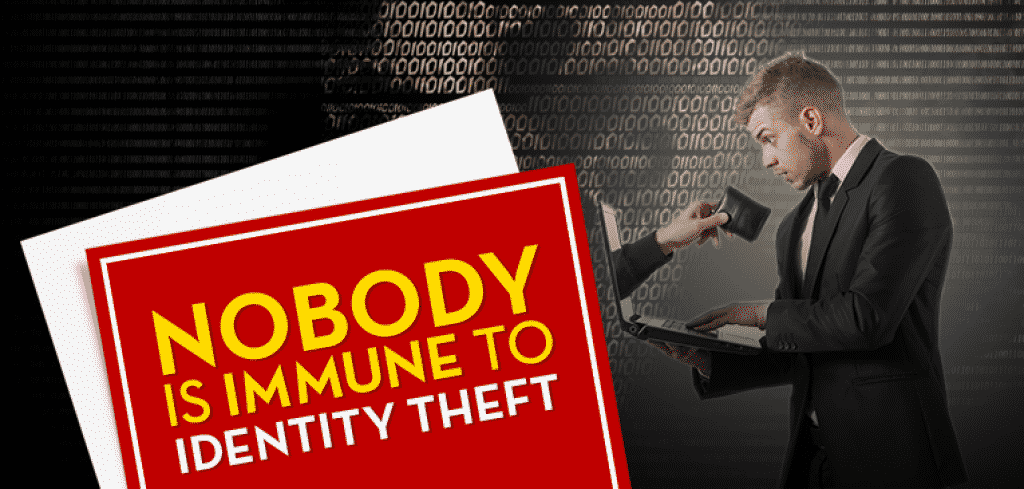The phrase “that could never happen to me” gets tossed around far too easily. It’s often used by people thinking they’re immune, or above, something (usually) bad happening to them. A common occurrence of this is the notorious identity theft. Until it happens to us, we consider it a fable, an impossibility, or a result of somebody else being irresponsible in disclosing their personal information and almost deserving it. It’s not “real” until you encounter it first hand, and it can happen to absolutely anybody. It’s a violation of privacy that need not be taken lightly.
 Take Mark Zuckerberg, for example. The Harvard dropout and founder of CEO is worth over $50 billion, yet in the past few days both his Twitter and Pinterest accounts were hacked. It would be easy to sit and point the finger at him for literally making his password “dadada.” Perhaps we owe it to ourselves to take a moment and do that just because as a tech industry titan, you’d think Mark Zuckerberg would take the proper precautions to ensure his personal security at all times. There is no hiding the irony of the man at the helm of Facebook getting his Twitter hacked. But the point rings true that it can happen to anybody, and it’s no joking matter.
Take Mark Zuckerberg, for example. The Harvard dropout and founder of CEO is worth over $50 billion, yet in the past few days both his Twitter and Pinterest accounts were hacked. It would be easy to sit and point the finger at him for literally making his password “dadada.” Perhaps we owe it to ourselves to take a moment and do that just because as a tech industry titan, you’d think Mark Zuckerberg would take the proper precautions to ensure his personal security at all times. There is no hiding the irony of the man at the helm of Facebook getting his Twitter hacked. But the point rings true that it can happen to anybody, and it’s no joking matter.
Not only did Zuckerberg see effects of this personal infraction, but anyone in his social circle may have seen the ensuing after effects as well. The power of acting as an identity which you are not is limitless; you can say anything to anybody. Threats can be issued, others may be left offended, and all because of the thievery of a social media account and the identity behind it. By committing this wrongdoing, you’re gravely affecting a single person and potentially their entire network.
 NFL Commissioner Roger Goodell experienced a more unorthodox version of identity theft. When the NFL’s Twitter account got hacked, the word was broadcasted to all 19.2 millions followers, plus millions more, that Roger Goodell had died. Within mere minutes, the rumor was put to bed, and the tweet was subsequently deleted. The account was then hacked two more times, issuing tweets that doubled down on the original claim. It became evident that it was nothing more than a hoax, but the transgressions had been committed, and the potential for harm was irreversible. Anyone privy to how breaking news gets released and/or anyone who is decently Twitter-savvy probably could have disproved the tweet themselves. But when it comes to somebody’s life, falsely announcing another person’s death is a serious offense.
NFL Commissioner Roger Goodell experienced a more unorthodox version of identity theft. When the NFL’s Twitter account got hacked, the word was broadcasted to all 19.2 millions followers, plus millions more, that Roger Goodell had died. Within mere minutes, the rumor was put to bed, and the tweet was subsequently deleted. The account was then hacked two more times, issuing tweets that doubled down on the original claim. It became evident that it was nothing more than a hoax, but the transgressions had been committed, and the potential for harm was irreversible. Anyone privy to how breaking news gets released and/or anyone who is decently Twitter-savvy probably could have disproved the tweet themselves. But when it comes to somebody’s life, falsely announcing another person’s death is a serious offense.
Goodell has been taking fire after controversial issues such as Ray Rice’s domestic abuse, Adrian Peterson’s suspension, and Tom Brady and the New England Patriots’ involvement in ‘Deflategate’. In short, Roger Goodell is winning any popularity contest amongst NFL fans; people have called for his job on countless occasions, and he will most likely continue to be condemned, persecuted, and loathed until his last day as Commissioner. The disapproval of him and his actions, however, does not excuse the egregious hoax.
What if somebody close to Goodell saw that tweet and thought it to be true? The emotional trauma could have been overwhelming for his friends, family, and co workers. The possibility of something like that, that inherent liability, is reason enough to take precaution. Goodell was able to diffuse, and even mock, the situation rather quickly. Despite him shedding some comedic relief to silence the naysayers and critics, the severity of this issue does not and cannot go unnoticed. These actions were so severe, in fact, that an investigation has been launched. Zuckerberg and Goodell were able to brush it off and escape mostly unscathed, but a small prank is a large price to pay for the miscreants who broke the law.
Now we have to ask ourselves what we can do moving forward. What can we do to ensure our own safety and protection? Is there any new form of technology that can help mitigate the risk we undertake every single time we enter our information into any platform? Perhaps we will begin to see more fingerprint detection software on our phones and computers. In the meantime, we have to do our own due diligence and educate ourselves. Strengthening passwords would be a strong starting point.
Try to stay away from using your name in any form, as well as patterns or common password words/phrases, like “password” for example. It’s highly recommended to use a combination of numbers and letters (and symbols if possible); the longer and more complicated the password, the more unlikely it is that it gets hacked. It’s naïve to assume your identity won’t be hacked or your information won’t be stolen. Take the proper precautions and do what you can to ensure this doesn’t happen to you.

